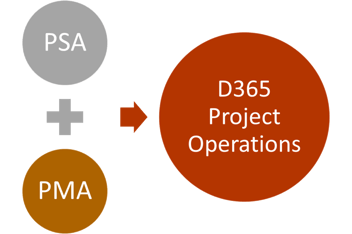Why employers should be embracing neurodiversity
Neurodiversity refers to the natural differences within human brain function. Depending on our thinking style, our brain will process information differently. Dyslexia, Dyspraxia, Autism, and ADHD are just a few examples of alternative thinking styles. Around 1 in 7 of us are neurodivergent, meaning we have some unique strengths such as processing information quickly, spotting patterns and Lateral thinking. Shockingly, approximately 84 percent of adults with autism suffer from unemployment. Many individuals are not diagnosed until adulthood which means there could be people within your organisation that want support from their employer.
Workplaces are typically designed for neurotypicals. When thinking about attracting and retaining a diverse talent pool, we need to understand what adjustments we can make in areas such as candidate selection and within the working environment. We’re not talking about radical changes; there are simple, cost-effective solutions that benefit all employees. Besides helping neurodivergent individuals thrive, inclusive employers will also benefit from increased employee engagement, job satisfaction, and overall success brought on by a team with different viewpoints and approaches to solving a problem.
Neurodiverse teams are at least 30 percent more productive. However, 9 out of 10 organisations do not have plans that support variation in neurocognitive functioning. Early adopters such as Microsoft and Dell have autism hiring programmes that enable them to nurture an untapped talent pool.
However, one in three people say they’re disappointed with how their employer approached their neurological condition, so what can we do to ensure we attract and retain neurodivergents?
Watch the video about Neurodiversity from HSBC.
Common neurodivergent thinking styles and how they impact the workforce
Autism
'When you have met one person with autism, you have met one person with autism', Meaning there is a spectrum, and everyone is different. Around 1 in 68 young people are now diagnosed as autistic. Typical strengths include problem-solving and analytical thinking, retaining information, and concentrating for long periods. Autistic people can struggle with social interaction and are literal thinkers, therefore they can find it hard to understand metaphors. Social anxiety and eye contact can sometimes make them appear aloof or visibly uncomfortable. Changes in routine and over-stimulation, for example, a noisy workplace, can also prevent people from thriving.
Dyslexia
Dyslexia is a common learning difficulty that can cause problems with reading, writing, and spelling. Around one in ten people in the UK has some degree of dyslexia. Dyslexic people are often creatives with an inventive nature. They excel at pattern spotting, seeing the bigger picture, and have exceptional qualitative reasoning. It's false to assume that dyslexic people cannot write and read properly; however, it may take them longer to process information. Some individuals with dyslexia can have poor organisational skills linked to short term memory; headaches and light sensitivity are also prevalent.
Dyspraxia
Dyspraxia UK defines dyspraxia (or Developmental Coordination Disorder, DCD) as ‘a complex neurological condition, which affects muscle coordination and perception. Perception includes vision, hearing and proprioception, or the awareness of where your limbs are in space.’ Around 1 in 17 people are thought to be dyspraxic. Resourceful and exceptional at problem-solving, dyspraxic people can possess entrepreneurial qualities. People with DCD are commonly diagnosed with dyslexia. There are also similarities with autistic people as eye contact and noise can be overwhelming for them. They may experience difficulties in practical tasks such as operating machinery or a mouse without a rollerball.
ADHD
Attention deficit hyperactivity disorder (ADHD) is a condition that affects people's behaviour. Individuals with ADHD can appear restless, may have trouble concentrating and can act on impulse. Around three percent of adults worldwide have ADHD. ADHDers are not afraid of taking calculated risks; they are not scared of change and are known for pushing boundaries. They also cope well under pressure and are excellent multitaskers.
How can employers embrace neurodiversity?
Neurodivergence may be regarded as a disability under the Equality Act 2010. This means employers are obliged to make sure people are not disadvantaged and consider reasonable adjustments.
Visit the gov.uk website to find out more about your obligations.
Commit: You might have a diversity policy, but does it help you embrace neurodiversity? Introduce policies and procedures that will help create a culture and guide managers.
Study your recruitment and selection process: Assess your job descriptions and application process to make sure it’s inclusive. State your willingness to adapt to neurodivergent candidates on your job descriptions. Provide training for colleagues on interview techniques, consider different types of tests and alternatives to interviews such as work trials.
Celebrate difference: Recognise and celebrate initiatives such as Autism month, if you have senior colleagues that think differently encourage them to come forward and share their story with others.
Educate and train your people: This includes training managers and signposting colleagues to helpful resources. You may decide to have training modules within your intranet.
Ask people to share their needs: One in three people are not offered support by their employer. Go beyond just asking people to disclose their needs at the beginning of their employment, provide opportunities for them to submit requests and survey your staff on the support they receive.
Be an adaptable employer: Be willing to adapt your procedures and talk to all your employees about what will help them excel in their role—dictation software for dyslexic employees and technology to assist with personal organisation. Ask the team if they enjoy hot-desking or keep home working in place.
Resources
Neurodiversity at work (cipd.co.uk)
Neurodiversity Mangers Guide (bupa.co.uk)
IT hiring targets the talent of the neurodiverse community | CIO
Crimson is an IT consultancy, an IT solutions provider, an IT recruitment agency, and a Microsoft Gold Partner operating across the UK.


